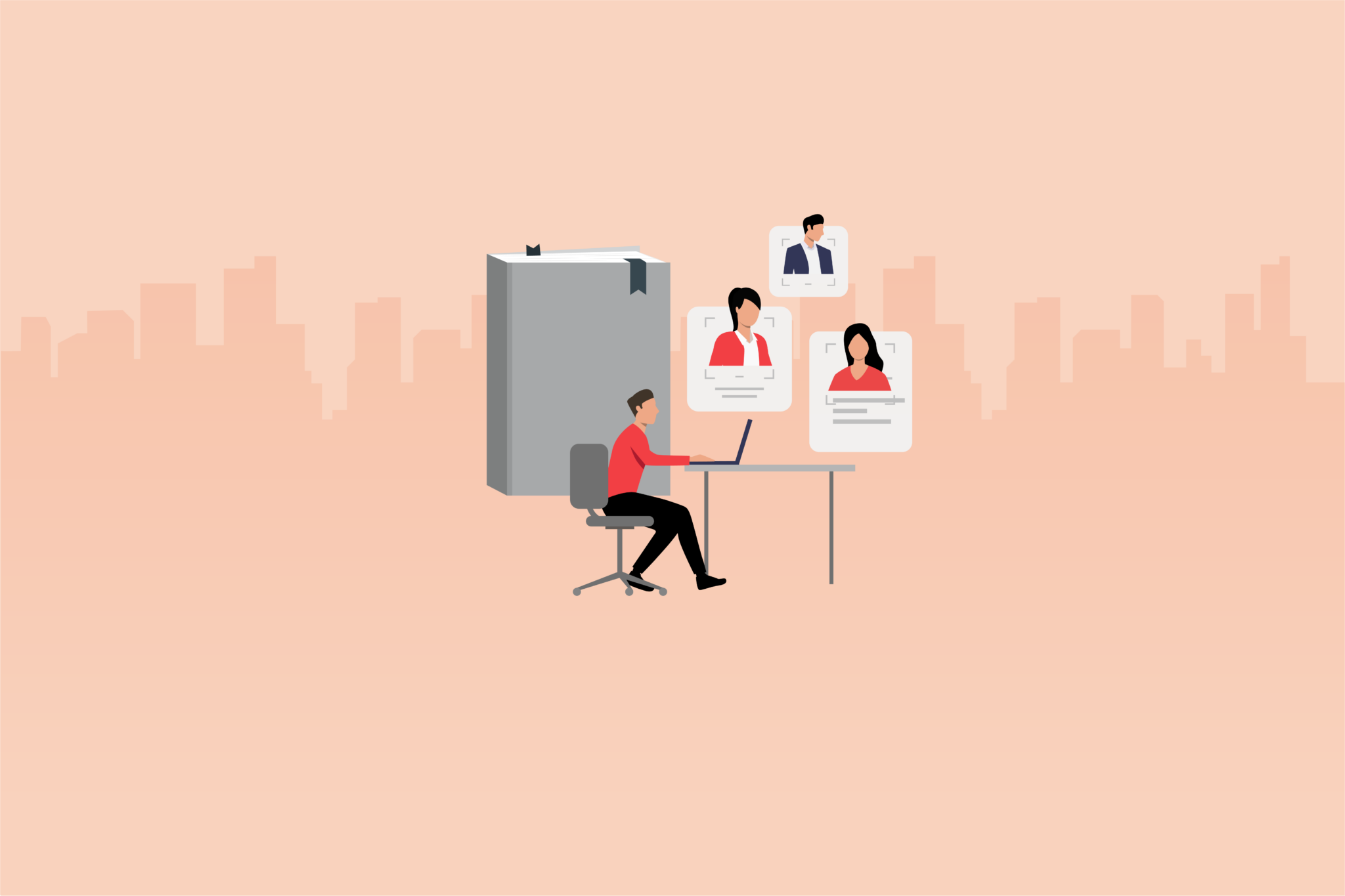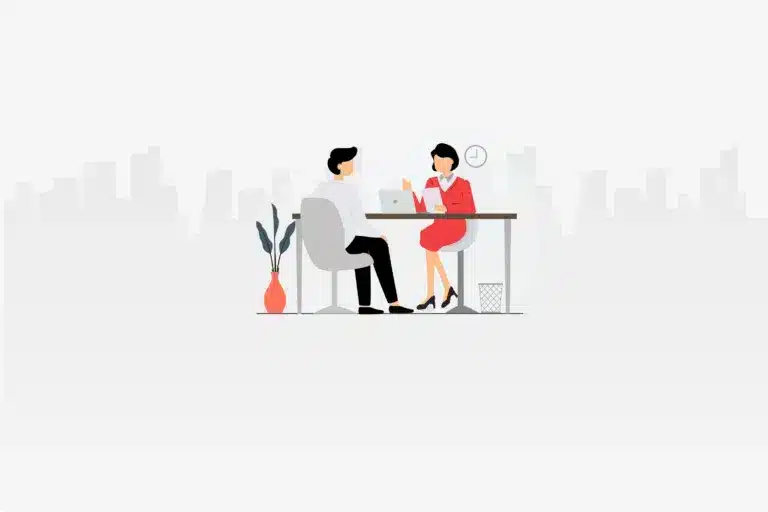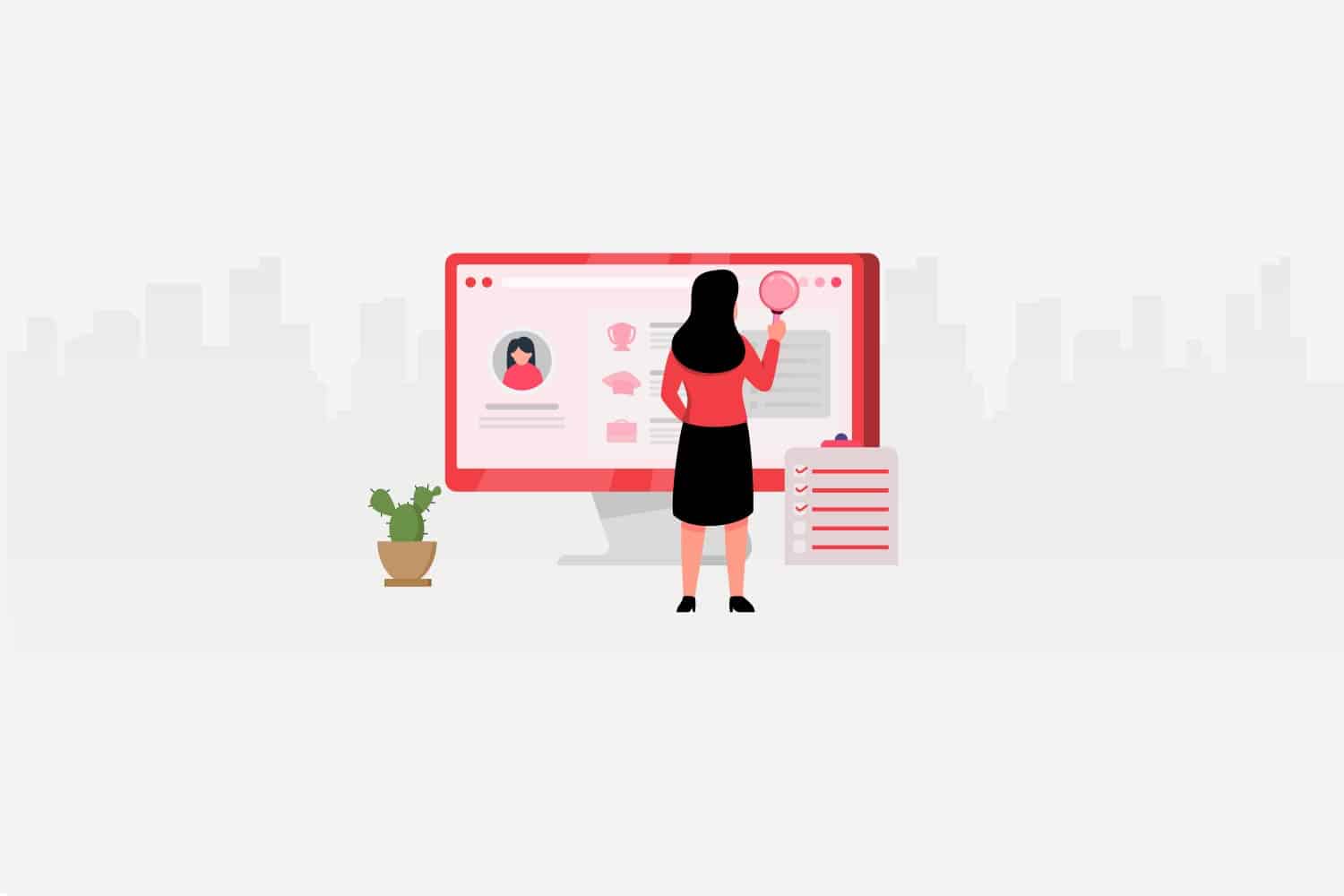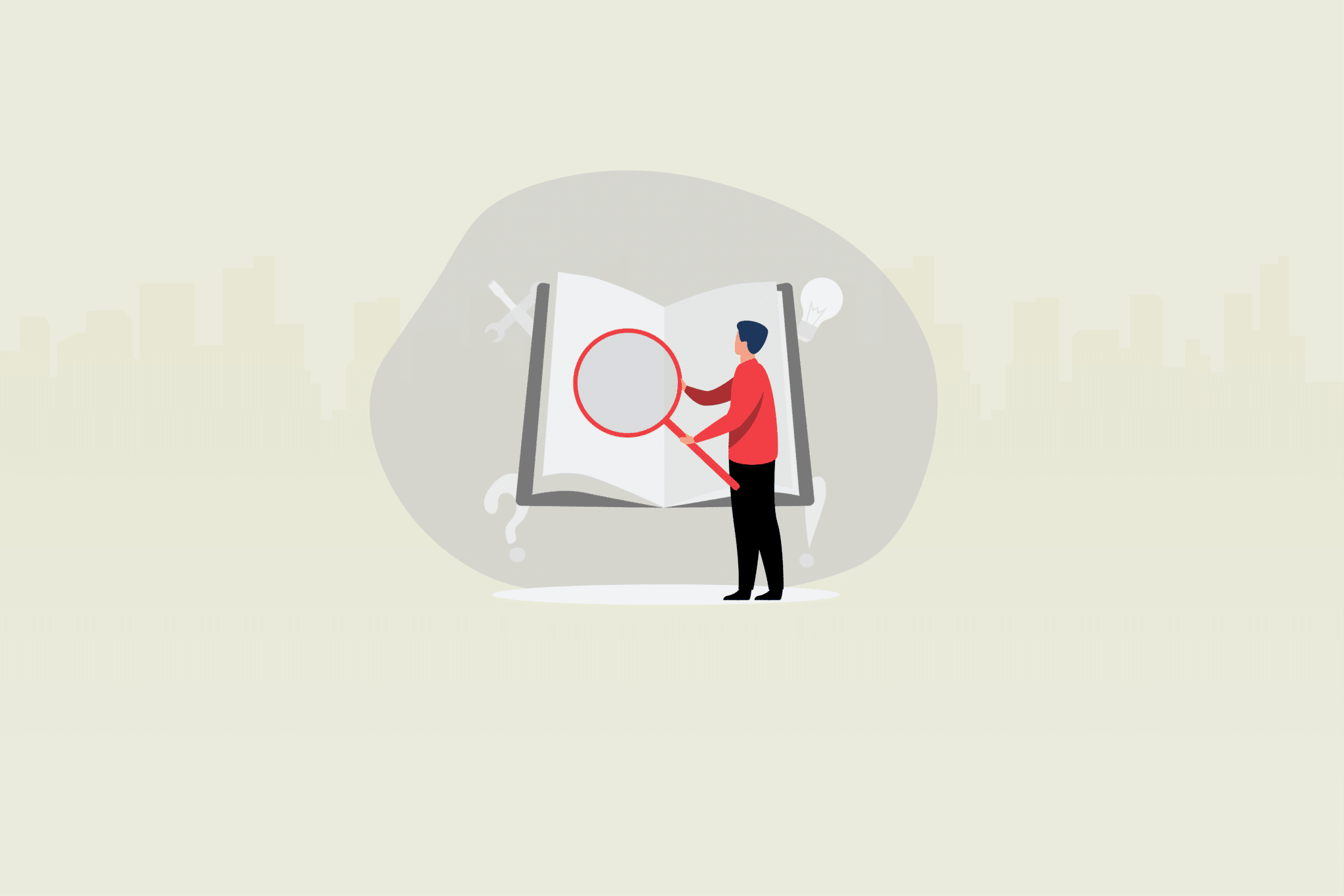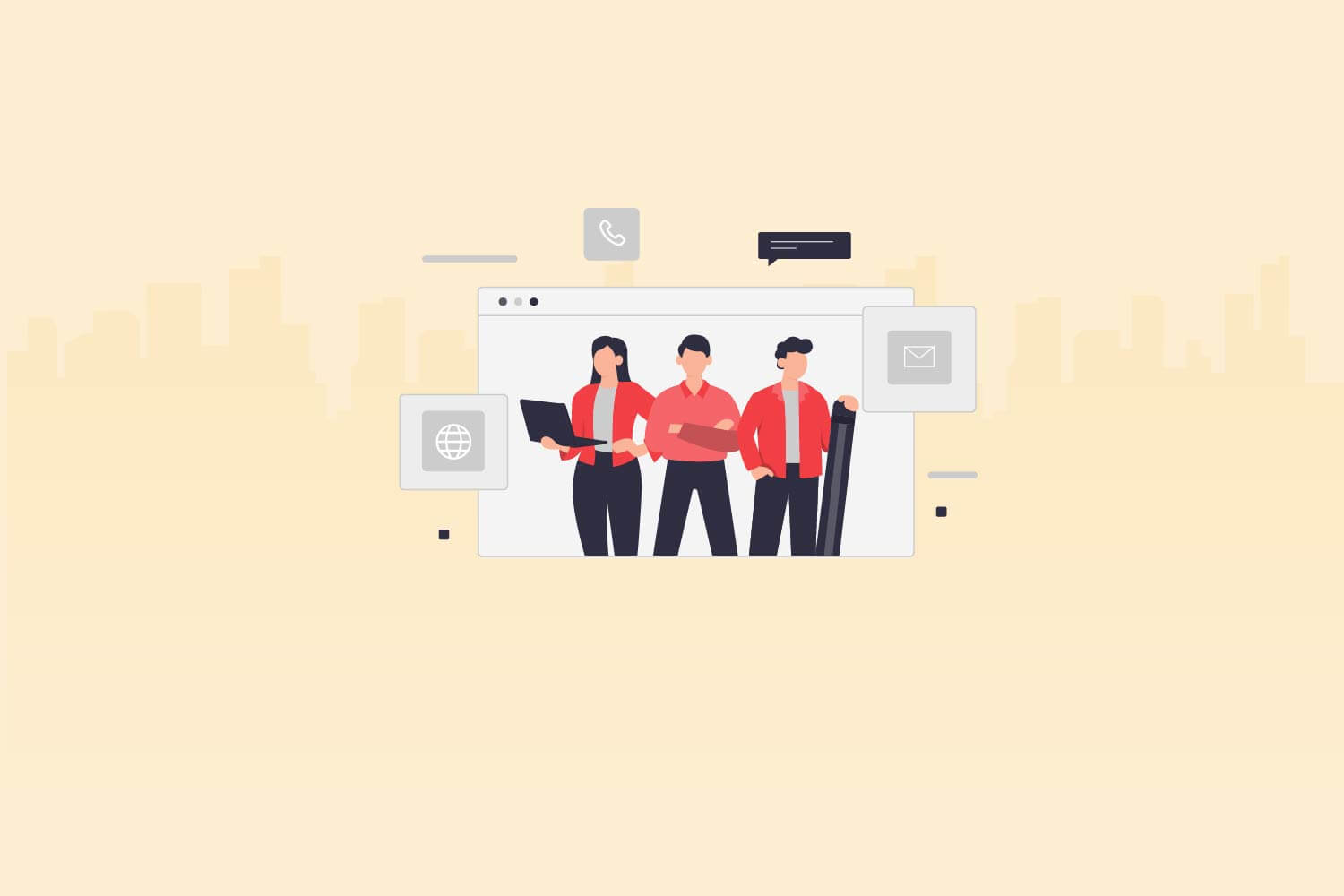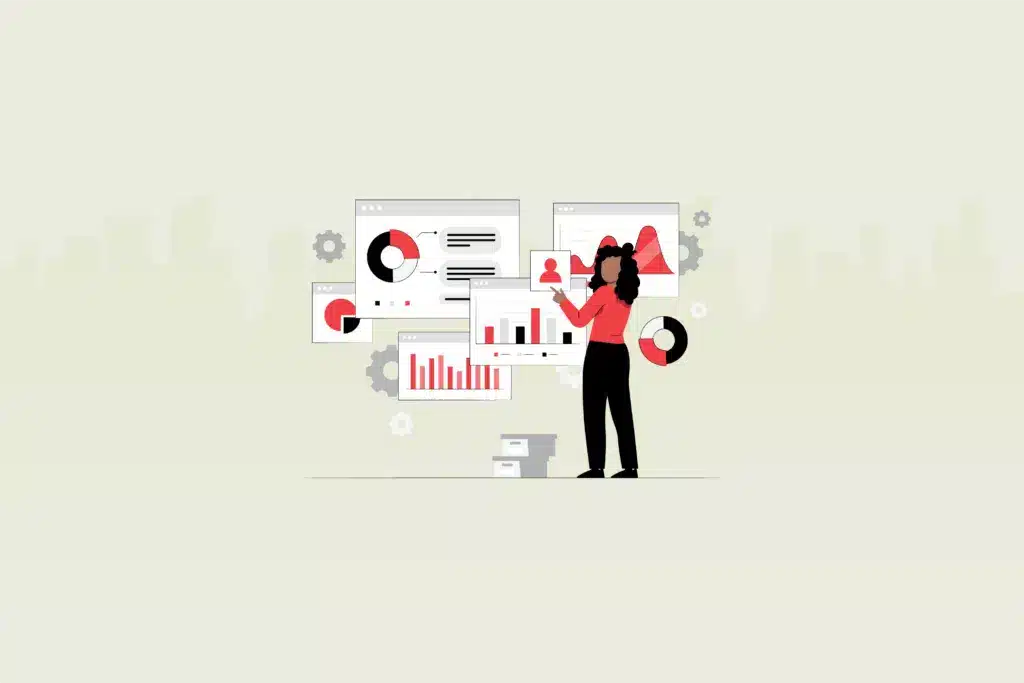Hiring a blockchain engineer can be a challenging task due to the high demand for these professionals and the shortage of talent in the market. It is important to consider a range of factors when hiring a blockchain engineer, including technical skills, education and certifications, experience, and language skills. Additionally, the location where the hiring is taking place can present unique challenges and considerations.
In general, hiring a blockchain engineer requires finding candidates with a strong background in computer science, software engineering, or a related field, and who have a good understanding of distributed systems, cryptography, and blockchain architecture. Candidates with degrees in computer science, software engineering, or a related field, as well as certifications in blockchain technology, may be more attractive to potential employers.
According to a report published by LinkedIn in 2021, blockchain engineering is one of the most in-demand skills in the job market. The report states that the demand for blockchain engineers has grown by over 200% in the past year, indicating a significant increase in the adoption and implementation of blockchain technology across industries.
In conclusion, blockchain hiring is a critical aspect of implementing blockchain solutions, and companies that prioritize this process are likely to attract the best talent in the market and create a competitive advantage for themselves.
Introduction to the role of a Blockchain engineer
A blockchain engineer is a professional responsible for designing, developing, and implementing blockchain-based solutions. Blockchain technology is a decentralized and distributed ledger technology that enables secure and transparent transactions without the need for intermediaries. A blockchain engineer leverages this technology to create new applications, systems, and platforms that address specific business challenges.
The role of a blockchain engineer requires a deep understanding of blockchain principles and technologies, such as cryptography, consensus algorithms, and distributed systems. They are responsible for designing and developing smart contracts, building decentralized applications (DApps), and developing the infrastructure required to manage and store blockchain data.
A blockchain engineer must also have a strong understanding of programming languages such as Solidity, Python, and C++, as well as blockchain platforms such as Ethereum, Hyperledger, and Corda. They should also have a good grasp of cybersecurity and data privacy principles to ensure the security and integrity of the blockchain network.
The demand for blockchain engineers has grown significantly in recent years, driven by the increasing adoption of blockchain technology across various industries, including finance, healthcare, supply chain, and others. Organizations are looking for skilled professionals who can design and implement blockchain solutions that address specific business challenges while ensuring the security and efficiency of their operations.
In summary, the role of a blockchain engineer is critical for organizations looking to leverage the benefits of blockchain technology, and it requires a unique set of skills and expertise to create effective blockchain solutions.
Understanding the role and responsibilities of a Blockchain engineering
A blockchain engineer is responsible for designing, developing, testing, and implementing blockchain-based solutions. The role of a blockchain engineer is critical in ensuring the secure and efficient functioning of blockchain networks, which are used for a variety of purposes such as digital transactions, smart contracts, supply chain management, and more.
The responsibilities of a blockchain engineer may include:
Designing and developing blockchain solutions
A blockchain engineer is responsible for designing and developing blockchain-based solutions that address specific business challenges. This includes developing smart contracts, decentralized applications (DApps), and other blockchain-based systems that enable secure and transparent transactions.
Implementing blockchain networks
A blockchain engineer is responsible for implementing blockchain networks, which includes setting up the necessary infrastructure, configuring nodes, and managing the blockchain network to ensure its security and efficiency.
Testing and debugging
A blockchain engineer is responsible for testing and debugging blockchain solutions to ensure their accuracy, reliability, and efficiency. This involves identifying and resolving any errors or bugs in the code.
Collaboration
A blockchain engineer must work closely with other team members, including business analysts, project managers, and other developers, to ensure the successful delivery of blockchain-based solutions.
Keeping up-to-date with emerging trends
A blockchain engineer must stay up-to-date with emerging trends and new technologies in the blockchain space. This involves researching new platforms, tools, and protocols to determine how they can be leveraged to improve existing blockchain solutions.
Overall, the role of a blockchain engineer is critical in ensuring the successful adoption and implementation of blockchain technology in various industries. Blockchain engineers must have a deep understanding of blockchain principles and technologies and be able to design and develop effective solutions that address specific business challenges while ensuring the security and efficiency of the blockchain network.
Defining the ideal candidate profile for Blockchain engineering
The ideal candidate for a blockchain engineering role should possess a unique set of skills and qualifications that enable them to design and develop effective blockchain-based solutions. Here are some of the key characteristics that make an ideal candidate for a blockchain engineering role:
Strong technical skills
A blockchain engineer must have a strong technical background, including a deep understanding of programming languages such as Solidity, Python, and C++, as well as blockchain platforms such as Ethereum, Hyperledger, and Corda.
Expertise in blockchain technologies
The ideal candidate should have a strong understanding of blockchain principles and technologies, including distributed systems, consensus algorithms, and cryptography.
Understanding of cybersecurity and data privacy principles
Blockchain engineers must have a good grasp of cybersecurity and data privacy principles to ensure the security and integrity of the blockchain network.
Continuous learning and curiosity
Given the fast-paced and constantly evolving nature of the blockchain space, the ideal candidate should have a strong desire to learn and stay up-to-date with emerging trends and new technologies in the blockchain industry.
Overall, the ideal candidate for a blockchain engineering role should possess a unique combination of technical skills, problem-solving abilities, and collaboration and communication skills, as well as a strong desire to continuously learn and stay up-to-date with emerging trends in the blockchain space.
The importance of job description for a Blockchain engineer
A job description is a crucial document for any company or organization looking to hire a new employee, especially in the field of blockchain engineering. Here are some reasons why a job description is important for a blockchain engineering role:
Clarifies the role
A job description clearly outlines the responsibilities, duties, and expectations of the blockchain engineer. This helps the employer and potential candidate to have a clear understanding of what is expected of them.
Attracts qualified candidates
A well-crafted job description attracts qualified candidates who possess the necessary skills and experience for the position. This helps to ensure that the employer gets the best possible candidate for the job.
Helps with recruitment
A job description provides a clear framework for the recruitment process. It helps to identify the key skills, qualifications, and experience required for the role, which helps to narrow down the pool of candidates.
Sets expectations
A job description sets the expectations for the role and the employee. It helps to define the level of responsibility and accountability for the blockchain engineer, which helps to ensure that they are working towards the goals and objectives of the organization.
Ensures compliance
A job description can also help to ensure compliance with legal and regulatory requirements. This includes ensuring that the job description is not discriminatory and that the employer is complying with equal opportunity laws.
Overall, a well-crafted job description is critical for a blockchain engineering role. It helps to ensure that the right candidate is hired for the job, and that they are aware of their responsibilities and the expectations of the employer.
Job description template for a Blockchain engineer
Job title: Blockchain engineer
Department: Blockchain engineering
Reports to: head of Blockchain engineering
Job summary:
The Blockchain Engineer will be responsible for designing, developing, and implementing blockchain solutions for the organization. The ideal candidate will have a strong background in distributed systems, cryptography, and blockchain technology.
Responsibilities:
- Develop and implement blockchain solutions for the organization
- Collaborate with cross-functional teams to understand business requirements and translate them into technical requirements
- Develop and maintain smart contracts and decentralized applications (dApps)
- Implement and maintain blockchain infrastructure and networks
- Conduct research on emerging blockchain technologies and provide recommendations on how they can be utilized by the organization
- Ensure the security and integrity of blockchain systems and data
Requirements:
- Bachelor’s or Master’s degree in Computer Science, Engineering, or a related field
- Minimum of 3 years of experience in developing and implementing blockchain solutions
- Strong programming skills in languages such as Solidity, Java, or Python
- In-depth knowledge of blockchain technology, distributed systems, and cryptography
- Experience with blockchain frameworks such as Ethereum or Hyperledger Fabric
- Knowledge of smart contract development and dApp development
- Strong problem-solving and analytical skills
Benefits:
- Competitive salary and benefits package
- Opportunities for professional development and growth
- Collaborative and inclusive work environment
- Opportunity to work on cutting-edge blockchain technology projects
- Exposure to a wide range of industries and clients
To apply, please submit your resume and cover letter to [insert contact information].
The importance of identifying skills gaps through a competency analysis
Identifying skills gaps through a competency analysis is crucial for a blockchain engineer. Here are some reasons why:
Improves job performance
A competency analysis helps identify skills gaps that may be hindering job performance. By addressing these gaps, the blockchain engineer can improve their job performance and ensure that they are meeting the expectations of their employer.
Enhances professional development
A competency analysis can also identify areas for professional development. By addressing these areas, the blockchain engineer can enhance their skills and knowledge, which can lead to career growth and advancement.
Increases efficiency and productivity
Identifying skills gaps can help the blockchain engineer to work more efficiently and productively. By improving their skills in specific areas, they can perform tasks more quickly and accurately, which can result in increased efficiency and productivity.
Addresses emerging technologies
Competency analysis can help to identify emerging technologies that the blockchain engineer needs to become proficient in. By staying up-to-date with the latest technologies, the engineer can ensure that they are delivering the best possible solutions to their organization.
Enhances team performance
Competency analysis can also help to identify skills gaps within the team. By addressing these gaps, the team can work more effectively together and deliver better outcomes for the organization.
In conclusion, identifying skills gaps through a competency analysis is crucial for a blockchain engineer. It can help to improve job performance, enhance professional development, increase efficiency and productivity, address emerging technologies, and enhance team performance. By continuously evaluating and addressing skills gaps, the blockchain engineer can ensure that they are delivering the best possible solutions to their organization.
Essential skills to be assessed for hiring Blockchain engineer
When hiring a blockchain engineer, it is essential to assess the following skills:
| Blockchain technology expertise | Problem-solving | Teamwork |
| Knowledge of cybersecurity | Communication | Critical thinking |
| Attention to detail | Leadership | AWS |
Blockchain technology expertise: The blockchain engineer should have a deep understanding of blockchain technology, including distributed ledgers, consensus mechanisms, smart contracts, and cryptography.
Problem-solving: The blockchain engineer should have strong problem-solving skills to identify and resolve technical issues.
Teamwork: The blockchain engineer should be able to work collaboratively with cross-functional teams, including business analysts, project managers, and other engineers.
Knowledge of cybersecurity: The blockchain engineer should have knowledge of cybersecurity to ensure the security and integrity of blockchain systems and data.
Communication: The blockchain engineer should have excellent communication skills to effectively communicate technical information to both technical and non-technical stakeholders.
Critical thinking: The blockchain engineer should be able to analyze complex problems and identify effective solutions using critical thinking skills.
Attention to detail: The blockchain engineer should have strong attention to detail to ensure the accuracy and integrity of blockchain systems and data.
Leadership: The blockchain engineer should be able to lead technical projects and provide guidance to other team members.
AWS: AWS is a cloud computing platform that provides various blockchain services that can help blockchain engineers to build, manage, and deploy blockchain applications in the cloud.
Programming skills: The blockchain engineer should have strong programming skills in languages such as Solidity, Java, or Python.
Experience with blockchain frameworks: The blockchain engineer should have experience with blockchain frameworks such as Ethereum, Hyperledger Fabric, or Corda.
Understanding of decentralized applications (dApps): The blockchain engineer should have knowledge of developing and deploying decentralized applications (dApps).
Familiarity with cloud platforms: The blockchain engineer should be familiar with cloud platforms such as AWS, Azure, or Google Cloud Platform.
Overall, the blockchain engineer should possess a combination of technical expertise, problem-solving skills, collaboration and teamwork, and a passion for continuous learning and improvement. By assessing these skills, organizations can ensure that they hire the best possible candidate for the blockchain engineer role.
Best practices for screening and interviewing Blockchain engineers
Here are some best practices for screening and interviewing blockchain engineers:
Review resumes and portfolios carefully
Review the candidate’s resume and portfolio thoroughly to assess their experience, technical skills, and blockchain-related projects.
Conduct technical assessments
Use technical assessments such as coding challenges and whiteboard sessions to evaluate the candidate’s technical expertise and problem-solving skills.
Ask behavioral questions
Ask behavioral questions to assess the candidate’s communication skills, teamwork, and adaptability.
Assess knowledge of specific blockchain frameworks
Ask specific questions about the candidate’s experience with blockchain frameworks such as Ethereum, Hyperledger Fabric, or Corda.
Discuss experience with smart contracts
Ask the candidate about their experience with developing and deploying smart contracts.
Evaluate knowledge of cryptography
Ask the candidate about their knowledge of cryptography and how it applies to blockchain technology.
Consider cultural fit
Consider the candidate’s cultural fit with the organization and team, as well as their passion for blockchain technology.
Check references
Check the candidate’s references to verify their experience and skills.
Conduct a group interview
Conduct a group interview with the candidate and other team members to assess how they would work within the team and contribute to blockchain initiatives.
By following these best practices, organizations can effectively screen and interview blockchain engineers to ensure that they hire the best possible candidate for the role.
Top interview questions for hiring Blockchain engineers
Sure, here are ten interview questions for hiring a Blockchain Engineer along with their importance and what to listen for:
1. What is your experience with developing and deploying smart contracts?
Why this matters: Smart contracts are a critical component of blockchain technology. This question assesses the candidate’s experience and knowledge of smart contract development and deployment, which is essential for building effective blockchain applications.
What to listen for: Look for a candidate who has experience with smart contract development and deployment, as well as knowledge of programming languages such as Solidity.
2. What is your experience with different blockchain frameworks such as ethereum, hyperledger fabric, or corda?
Why this matters: Different blockchain frameworks have different architectures, features, and use cases. This question assesses the candidate’s familiarity with different blockchain frameworks and their ability to work with a specific framework.
What to listen for: Look for a candidate who has experience with at least one major blockchain framework, as well as the ability to learn and work with new frameworks.
3. What is your knowledge of consensus mechanisms such as Proof of work, proof of stake, or byzantine fault tolerance?
Why this matters: Consensus mechanisms are essential for maintaining the integrity and security of blockchain networks. This question assesses the candidate’s knowledge of different consensus mechanisms and their implications for blockchain design and performance.
What to listen for: Look for a candidate who has knowledge of different consensus mechanisms, as well as their advantages, disadvantages, and trade-offs.
4. What is your experience with cryptography and how it applies to blockchain technology?
Why this matters: Cryptography is a fundamental technology that underlies blockchain security and privacy. This question assesses the candidate’s knowledge of cryptography and how it applies to blockchain design and implementation.
What to listen for: Look for a candidate who has knowledge of cryptographic primitives, algorithms, and protocols, as well as their use cases and limitations in blockchain applications.
5. What is your experience with developing decentralized applications (dApps)?
Why this matters: Decentralized applications are the primary use case for blockchain technology. This question assesses the candidate’s experience and knowledge of developing and deploying dApps on blockchain platforms.
What to listen for: Look for a candidate who has experience with dApp development, as well as the ability to design and implement dApps that meet user requirements and performance goals.
6. What is your experience with using smart contract development tools such as Remix, Truffle, or Ganache?
Why this matters: Smart contract development tools are essential for creating, testing, and deploying smart contracts on blockchain networks. This question assesses the candidate’s knowledge of smart contract development tools and their ability to use them effectively.
What to listen for: Look for a candidate who has experience with smart contract development tools, as well as the ability to troubleshoot and debug smart contracts using these tools.
7. What is your experience with developing and integrating Blockchain APIs?
Why this matters: Blockchain APIs are essential for connecting blockchain networks with external systems and services. This question assesses the candidate’s experience and knowledge of developing and integrating blockchain APIs.
What to listen for: Look for a candidate who has experience with developing and using blockchain APIs, as well as knowledge of API design principles and standards.
8. What is your experience with deploying and managing Blockchain nodes?
Why this matters: Deploying and managing blockchain nodes is essential for maintaining blockchain networks and applications. This question assesses the candidate’s experience and knowledge of deploying and managing blockchain nodes.
What to listen for: Look for a candidate who has experience with deploying and managing blockchain nodes, as well as knowledge of node setup, configuration, and monitoring.
The role of reference and background checks in Blockchain engineer
Reference and background checks play a critical role in the hiring process of a blockchain engineer. Here are some ways they can be useful:
Verification of skills and experience
Reference and background checks can be used to verify the skills and experience listed on the candidate’s resume or during the interview process. This helps to ensure that the candidate has the necessary qualifications to perform the job.
Evaluating work ethic
Checking references can give insight into the candidate’s work ethic, including their ability to work in a team, meet deadlines, and take on challenges. This can be useful in assessing whether the candidate is a good fit for the company’s culture.
Detecting fraud and misrepresentation
Background checks can reveal any criminal or unethical behavior on the part of the candidate. This can include fraud or misrepresentation of skills or experience. Conducting a thorough background check can help to prevent hiring someone who may be a risk to the company.
Protecting company reputation
Hiring a candidate with a history of unethical behavior or criminal activity can damage the reputation of the company. Reference and background checks can help to mitigate this risk by identifying any potential red flags in the candidate’s history.
Overall, reference and background checks can provide valuable insights into a candidate’s skills, experience, and work history. They can also help to protect the company from potential risks and safeguard its reputation.
Assessing and comparing blockchain engineer: key strategies
Assessing and comparing blockchain engineers can be challenging due to the technical and specialized nature of the field. However, the following key strategies can help:
Define clear criteria
It’s important to define clear criteria for assessing and comparing blockchain engineers, including technical skills, industry experience, educational background, and soft skills such as communication and teamwork.
Conduct technical assessments
Technical assessments such as coding challenges, whiteboard sessions, and technical interviews can help to assess the candidate’s technical skills and problem-solving abilities. These assessments should be designed to test the candidate’s proficiency in blockchain technologies such as smart contracts, consensus algorithms, and cryptography.
Review work samples
Reviewing work samples such as code repositories, project portfolios, and open-source contributions can provide valuable insights into the candidate’s experience and skills. These samples should be evaluated based on their quality, complexity, and relevance to the job requirements.
Conduct behavioral interviews
Behavioral interviews can help to assess the candidate’s soft skills, such as communication, teamwork, and problem-solving. These interviews should be designed to elicit specific examples of the candidate’s behavior and decision-making in past work situations.
Use standardized evaluation criteria
To ensure consistency and fairness in the assessment process, it’s important to use standardized evaluation criteria and scorecards. These criteria should be based on the job requirements and weighted according to their importance.
Benchmark against industry standards
Benchmarking the candidate’s skills and experience against industry standards and best practices can help to assess their competitiveness and potential for success in the role.
By following these key strategies, recruiters can assess and compare blockchain engineers more effectively and make informed hiring decisions.
The importance of salary and compensation benchmarking
Salary and compensation benchmarking is important for hiring and retaining top talent in the blockchain engineering field. Here are some reasons why:
Attracting top talent
Offering competitive salaries and compensation packages can help to attract the best candidates in the blockchain engineering field. By benchmarking against industry standards and other companies, employers can ensure that they are offering a fair and competitive salary.
Retaining employees
Compensation benchmarking can also help to retain top employees by ensuring that they are being paid fairly compared to others in the field. This can improve employee satisfaction and reduce turnover rates.
Ensuring fairness
Benchmarking salaries and compensation can also help to ensure that employees are being paid fairly within the organization. This can help to prevent disparities and promote a culture of fairness and equality.
Staying competitive
The blockchain engineering field is constantly evolving, and salaries and compensation packages must keep up with industry trends and changes. Benchmarking can help employers stay competitive and attract and retain top talent.
Overall, salary and compensation benchmarking is an essential tool for hiring and retaining top talent in the blockchain engineering field. It helps to ensure fairness, attract and retain top employees, and stay competitive in a rapidly evolving industry.
The role of onboarding and training in Blockchain engineer
The role of onboarding and training is critical for a blockchain engineer. Here are some reasons why:
Enhancing skills and knowledge
Onboarding and training can help to enhance the skills and knowledge of a blockchain engineer. This is particularly important in a rapidly changing industry like blockchain, where staying up-to-date with the latest trends and technologies is essential.
Reducing ramp-up time
A well-structured onboarding and training program can reduce the time it takes for a blockchain engineer to become fully productive. This can help to increase efficiency and productivity, which is essential in a fast-paced industry like blockchain.
Improving job satisfaction
Providing adequate onboarding and training can improve job satisfaction for a blockchain engineer. Feeling confident and competent in their role can lead to greater job satisfaction and motivation.
Promoting a culture of learning
Onboarding and training can promote a culture of learning within the organization. This can encourage employees to continuously improve their skills and knowledge, leading to a more innovative and dynamic workforce.
Reducing turnover
Providing comprehensive onboarding and training can also help to reduce turnover rates. Employees who feel supported and invested in are more likely to stay with an organization long-term.
Overall, onboarding and training are essential for a blockchain engineer to be successful in their role. It can enhance their skills and knowledge, reduce ramp-up time, improve job satisfaction, promote a culture of learning, and reduce turnover rates.
Best practices for recruiting Blockchain engineer: avoid these common mistakes
Recruiting top talent in the blockchain engineering field can be challenging. Here are some best practices for avoiding common mistakes in the recruitment process:
Clearly define job requirements
It’s important to clearly define the job requirements for a blockchain engineer, including hard and soft skills, industry experience, and educational background. This can help to attract the right candidates and ensure that they are a good fit for the role.
Use multiple recruitment channels
To reach a wider pool of candidates, it’s important to use multiple recruitment channels, including job boards, social media, referrals, and networking events. This can help to increase the chances of finding the right candidate for the job.
Avoid biases
Biases can hinder the recruitment process and lead to hiring the wrong candidate. It’s important to avoid biases based on age, gender, ethnicity, and other factors and to focus on the candidate’s qualifications and experience.
Conduct thorough interviews
Thorough interviews can help to identify the candidate’s skills, experience, and qualifications. It’s important to ask targeted questions that assess their technical knowledge, problem-solving skills, and ability to work in a team.
Provide adequate compensation
Providing competitive compensation packages can help to attract and retain top talent in the blockchain engineering field. It’s important to benchmark against industry standards and other companies to ensure that the compensation package is fair and competitive.
Develop an effective onboarding program
Developing an effective onboarding program can help to reduce ramp-up time and increase productivity. It’s important to provide adequate training and support to ensure that the new hire is successful in their role.
By following these best practices, recruiters can avoid common mistakes in the recruitment process and find the right candidate for the job.
The importance of continuous improvement in Blockchain engineer recruitment
Continuous improvement is essential in blockchain engineer recruitment for the following reasons:
Evolving industry
The blockchain industry is constantly evolving, with new technologies, applications, and use cases emerging all the time. To recruit the best talent, it’s important to stay up-to-date with the latest trends and innovations in the industry.
Competitive landscape
The demand for blockchain engineers is high, and the competition for top talent is intense. To stay competitive, recruiters must continuously improve their recruitment strategies and processes.
Changing candidate preferences
Candidate preferences and expectations can change over time, and it’s important to understand and adapt to these changes. For example, some candidates may prefer remote work or flexible schedules, and recruiters should be prepared to offer these options if possible.
Recruitment metrics
Recruitment metrics can help to track the effectiveness of recruitment strategies and identify areas for improvement. Metrics such as time-to-hire, cost-per-hire, and candidate satisfaction can provide valuable insights into the recruitment process.
Employer branding
Continuous improvement in recruitment can also help to enhance employer branding. A positive candidate experience can lead to positive word-of-mouth referrals and a stronger reputation as an employer of choice in the industry.
Overall, continuous improvement in blockchain engineer recruitment is essential to stay competitive in a rapidly evolving industry and attract the best talent. It involves staying up-to-date with the latest trends and innovations, adapting to changing candidate preferences, tracking recruitment metrics, and enhancing employer branding.
Streamlining the Blockchain engineer hiring process with Testlify
As a blockchain engineer, Testlify can be an invaluable tool to streamline the recruitment process and gain valuable insights into potential candidates’ technical abilities. Testlify offers advanced assessment tools that can assist in identifying top candidates, evaluating their technical skills and competencies, and making data-driven hiring decisions. By utilizing Testlify’s comprehensive platform, organizations can easily manage the entire recruitment process, from posting job listings to conducting technical assessments and selecting the most suitable candidate. With Testlify’s test library, organizations can save time and resources while ensuring they select the most competent and qualified blockchain engineer for the job.
Wrapping up
The process of hiring a blockchain engineer is critical and requires meticulous planning and execution. Defining the ideal candidate profile, crafting a detailed job description, conducting a rigorous screening and interview process, and making informed decisions on compensation and benefits can significantly increase the likelihood of finding the best candidate for the role. In addition, implementing a robust onboarding and retention program and continuously improving practices can help ensure the blockchain engineer is well-prepared to excel in the position and contribute to the organization’s overall success.
Maximize your chances of hiring the right blockchain engineer by utilizing Teslify’s skill assessment tool to accurately evaluate candidate skills. Sign up for the free trial and take advantage of this opportunity today!
